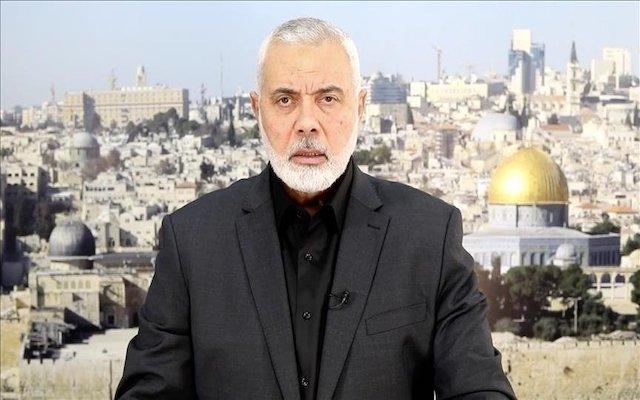Amidst the backdrop of intense hostilities, Israeli and Hamas officials find themselves embroiled in a complex dialogue, seeking to negotiate a ceasefire and secure the release of hostages currently held in Gaza. Despite the efforts of mediators from Egypt and the United States, both sides have cast accusations of intransigence, stymieing progress towards peace, although it is Hamas's "unreasonable and impractical" preconditions that all third-party nations involved in the agreement agree is the biggest impediment blocking a deal.
A contentious point in the negotiations is Hamas's inability to furnish a comprehensive list of living hostages, a reasonable prerequisite set by Israel for advancing talks. As Israel is being asked, and has agreed to release hardened criminals and terrorists, not knowing who and how many hostages are alive would essentially allow Hamas to trade dead bodies for prisoners who have "blood on their hands". The impasse has drawn international attention, with senior Hamas representatives arguing that a complete cessation of hostilities is their precondition for such disclosures, essentially demanding Israel stop the offensive on Gaza before the terror group agrees to return any hostages.
A senior Hamas leader said that they don't know who is alive and who is dead from the Israeli hostages; he said they are being held by many groups, and they need a ceasefire to locate them...sure...sure...
— Raylan Givens (@JewishWarrior13) March 4, 2024
Despite these challenges, there have been flashes of optimism from the countries embroiled in mediating these talks. Reports from Egyptian state-linked media suggest strides towards a ceasefire in the Gaza Strip, however contrasting statements from Hamas officials to Lebanese and other Arab media outlets paint a picture of stalled negotiations, blaming Israel's reticence to acquiesce to their preconditional demands, which include not just a full ceasefire, but full troop withdrawal from Gaza and the facilitation of displaced Gazans' return to their homes in the Northern part of the Gaza Strip.
The narrative is further complicated by Hamas's conditional approach to the release of Palestinian prisoners and the logistics of resettling displaced Gazans—a plan that emphasizes a phased return under the auspices of international organizations like the Red Cross and UNRWA, two organizations that have been proven to be unreliable. UNRWA personnel took part in the October 7th attacks and thousands of them in the Gaza Strip have been linked to Hamas and other terror groups. The ICRC has failed to not just visit hostages, but misled Israel in what amounted to an anti-Israel public relations campaign. The humanitarian organization had promised to deliver medicine to the hostages but a raid on Nasser hospital by Israeli forces uncovered the medicine discarded and undelivered.
Can Hamas be defeated if Israeli forces do not go into Rafah?@jconricus joins @foxandfriends from Israel to explain what Israel must do to defeat Hamas, rescue the hostages, and reach a ceasefire. Watch 👇 pic.twitter.com/mnrxzcBTxY
— FDD (@FDD) March 4, 2024
Israel's hesitation to engage further in talks without a clear commitment from Hamas, as evidenced by their non-participation in the latest Cairo discussions, underscores the fraught nature of these negotiations. The international community, spearheaded by the United States, Egypt, and Qatar, remains actively involved in mediating these discussions, highlighting the geopolitical significance of the conflict and the urgent need for a resolution.
The U.S. State Department has explicitly called for an immediate ceasefire, placing the onus on Hamas to accept a proposed deal that aims to alleviate the humanitarian crisis in Gaza and secure the hostages' release. This stance is echoed by U.S. President Joe Biden, who, despite acknowledging the elusive nature of an agreement, remains hopeful for a resolution before Ramadan.
Hamas claims that it needs a ceasefire and end to the war to release hostages. There was no war on October 6 and Hamas was holding Avera Mengistu and Hisham Sayed as hostages. Why didn’t it release them before the war and not start the war in the first place? Why did Hamas hold…
— Seth Frantzman (@sfrantzman) March 5, 2024
However, the specter of escalating violence looms large, with concerns that Hamas's leadership may seek to intensify hostilities during Ramadan, a period traditionally marked by heightened tensions. Israel remains vigilant, preparing for potential escalations not only in Gaza but across its borders with Lebanon and the West Bank, and in Jerusalem, where access to religious sites could become a flashpoint. Hamas leaders in Qatar and Turkey have openly called for Palestinians to not just riot during the Muslim holy month, but even carry out mass casualty attacks.
Amid these geopolitical machinations, the human toll of the conflict is starkly evident. Families of hostages, marking significant periods of captivity, are a poignant reminder of the conflict's devastating impact on individuals and communities alike. The grim statistics of casualties and displacement underscore the urgency of reaching a humanitarian and political solution to a crisis that has inflicted untold suffering and destabilized the region.
A message to all #Jews from a #Hamas terrorist. This is what they mean when they chant #FreePalestine 🇵🇸pic.twitter.com/1a3hjd0QdN
— Michal/Michele -מיכל✡️ 🟦 (@MichalSabra) March 4, 2024
As negotiations continue, the international community watches closely, hoping for a breakthrough that can pave the way for peace and reconciliation. The resolution of this conflict requires not just the cessation of hostilities but a comprehensive approach that addresses the underlying issues and ensures the dignity, security, and rights of all parties involved.


